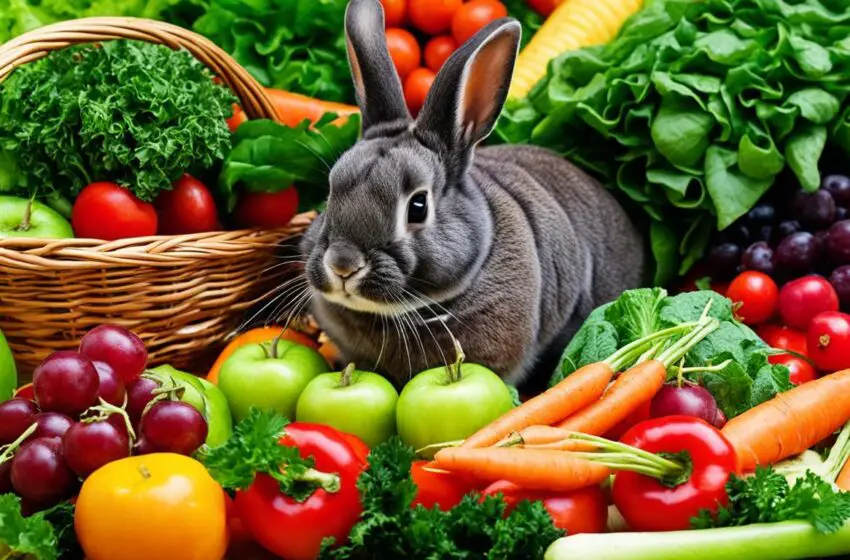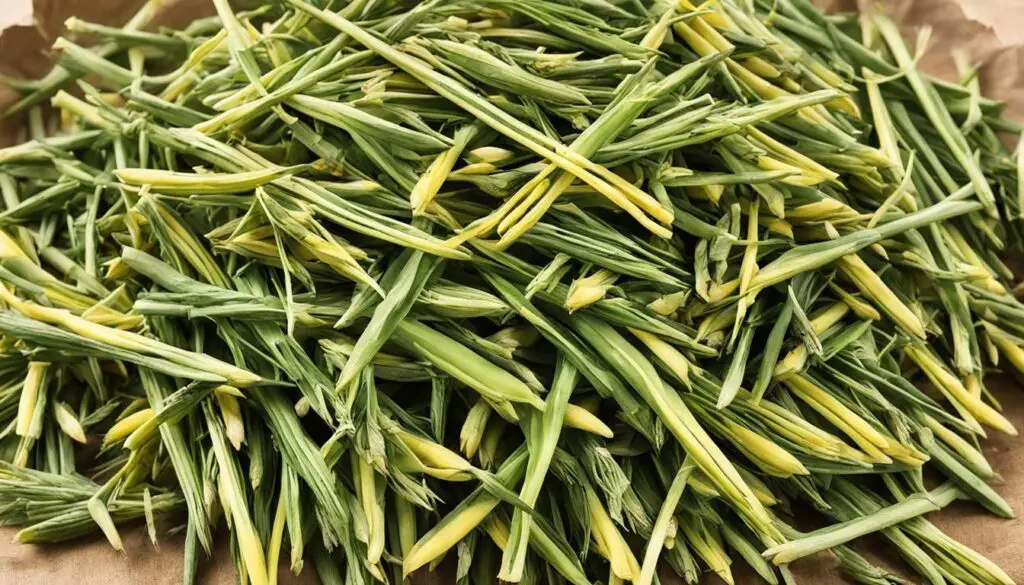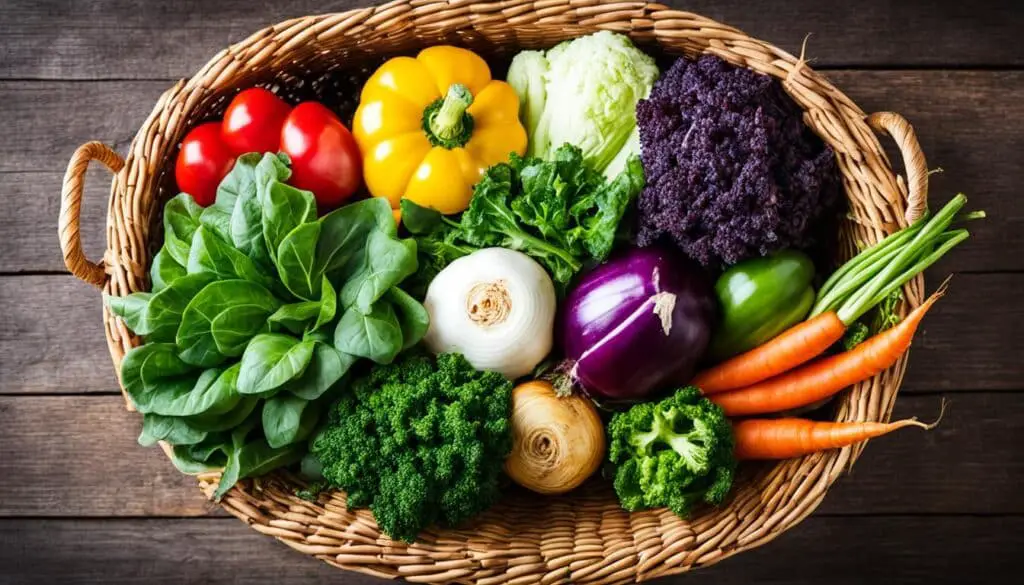Dwarf Rabbit Diet: Essential Nutrition Tips

As a responsible rabbit owner, I understand the importance of providing a well-balanced diet for my dwarf rabbit. A proper diet is crucial for their overall health and happiness. In this article, I will share essential nutrition tips to ensure your dwarf rabbit stays healthy and thriving.
Key Takeaways
- Provide a balanced and nutritious diet for your dwarf rabbit
- Incorporate hay as a crucial part of their diet for dental health and digestion
- Include a variety of fresh vegetables to provide necessary vitamins and minerals
- Use pellets in limited quantities to prevent overfeeding
- Ensure your dwarf rabbit has access to fresh water and occasional treats
Importance of Hay in a Dwarf Rabbit’s Diet
Hay is a crucial component of a dwarf rabbit’s diet and plays a key role in maintaining their dental health and digestion.
Hay is rich in fiber, which is essential for a rabbit’s digestive system. It helps to keep their digestive tract functioning properly and prevents gastrointestinal issues.
The constant gnawing on hay also helps to wear down a rabbit’s constantly growing teeth, preventing dental problems such as overgrown teeth or malocclusion.
Additionally, hay provides mental stimulation for rabbits, as they enjoy the process of foraging and exploring while eating it.

Rabbits should have access to unlimited amounts of hay at all times. It should be the main component of their diet, with fresh vegetables and limited pellets supplementing their hay intake.
When selecting hay for your dwarf rabbit, opt for high-quality Timothy hay or other grass hays such as Orchard grass or Brome. These varieties are nutritionally rich and provide the necessary roughage for proper digestion.
“Hay is the foundation of a dwarf rabbit’s diet, providing essential dental health benefits and aiding in proper digestive function.”
Essential Fresh Vegetables for Dwarf Rabbits
Incorporating fresh vegetables into your dwarf rabbit’s diet is vital to ensure they receive the necessary vitamins and minerals for their overall health and well-being. Fresh vegetables not only provide essential nutrients but also contribute to a varied and balanced diet for your furry friend. Here are some of the best vegetables to include:
- Leafy Greens: Leafy greens such as kale, spinach, and romaine lettuce are excellent options for your dwarf rabbit. These vegetables are rich in fiber, vitamins, and minerals. Remember to wash them thoroughly and remove any dirt or pesticides before feeding them to your rabbit.
- Bell Peppers: Bell peppers, whether red, green, or yellow, are a great source of vitamin C for your dwarf rabbit. They also add color and flavor to their diet. Chop the peppers into bite-sized pieces and offer them as a treat or mix them with other vegetables.
- Carrots: Carrots are a well-known favorite among rabbits. They are not only nutritious but also help promote dental health due to their crunchy texture. Offer small pieces of carrot as a snack or mix them with other vegetables for added variety.
- Broccoli: Broccoli is a nutrient-packed vegetable that can be added to your dwarf rabbit’s diet in moderation. It is a good source of fiber, vitamin C, and calcium. Steam or lightly cook the broccoli before serving it to your rabbit.
Remember to introduce new vegetables gradually to your rabbit’s diet and observe how they react to each one. Some rabbits may have specific dietary restrictions or allergies, so it’s important to monitor their response and consult with a veterinarian if needed.

Proper Pellet Usage for Dwarf Rabbits
While pellets can be part of a dwarf rabbit’s diet, it is important to use them in moderation. Pellets are commercially prepared food that provide essential nutrients for your rabbit. However, overfeeding pellets can lead to various health issues, including obesity.
Too many pellets can disrupt the delicate balance of your rabbit’s digestive system and lead to gastrointestinal problems.
Pellets should only make up a small portion of your dwarf rabbit’s diet. The majority of their diet should consist of fresh hay and a variety of fresh vegetables. Hay is crucial for their overall health as it aids in dental health and digestion.
Remember, pellets should be viewed as a supplement, not the main source of nutrition for your dwarf rabbit.
When selecting pellets for your rabbit, choose high-quality pellets that are specifically designed for dwarf rabbits. These pellets should have limited quantities of starches and sugars, as these can be detrimental to your rabbit’s health.
It is recommended to feed your dwarf rabbit approximately 1/4 to 1/8 cup of pellets daily, depending on their size and weight. Monitor your rabbit’s weight and adjust the pellet quantity accordingly. Ensure that fresh water is always available to keep your rabbit properly hydrated.
| Pellet Brand | Ingredients | Pellet Size | Quantity |
|---|---|---|---|
| Brand A | Timothy hay, dried vegetables, essential vitamins | Small | 1/4 cup |
| Brand B | Alfalfa, soybean, grains, minerals | Medium | 1/4 cup |
| Brand C | Timothy hay, dried fruits, probiotics | Small | 1/8 cup |
Remember, a balanced diet is essential for your dwarf rabbit’s well-being. Providing limited quantities of pellets, along with a variety of fresh hay and vegetables, will ensure that your furry friend receives the necessary nutrients for a healthy and happy life. Consult with a veterinarian for specific dietary recommendations tailored to your dwarf rabbit’s needs.
Hydration and Treats for Dwarf Rabbits
Proper hydration is essential for maintaining the health and well-being of your dwarf rabbit. Fresh water should always be available to them, as they need to drink regularly to stay hydrated. It is important to clean their water bowl daily and ensure a sufficient supply of clean, fresh water at all times.
In addition to water, treats can be a delightful addition to your dwarf rabbit’s diet. However, it’s important to offer treats in moderation and choose healthy options that align with their dietary needs. Opt for treats specifically designed for rabbits, avoiding those high in sugar or artificial ingredients.
Remember: Treats should never replace their staple diet of hay, fresh vegetables, and limited pellets. They should only be given as occasional rewards and not substitute for their regular meals or hydration needs.
Quote: “Treat time can be a great bonding experience with your dwarf rabbit. It’s a chance to give them something special and show them some love.” – Dr. Emily Robinson, DVM
Treat Options for Dwarf Rabbits
When choosing treats for your dwarf rabbit, prioritize options that are safe and healthy. Here are some suitable treat options:
- Small pieces of fresh fruits, such as apple or banana (in moderation)
- Natural rabbit treats made from timothy hay or other rabbit-friendly ingredients
- Chew sticks or toys made from safe materials, like untreated wood or woven grass
Always remember to introduce new treats gradually, as sudden dietary changes can upset your rabbit’s digestive system. Monitor their reaction to new treats and consult with a veterinarian if you have any concerns.
| Treat Option | Description |
|---|---|
| Small pieces of fresh fruits (in moderation) | Provide natural sweetness and variety to their diet. Avoid feeding fruits high in sugar. |
| Natural rabbit treats made from timothy hay or other rabbit-friendly ingredients | Specially formulated treats that cater to their nutritional needs. Ensure they are free from harmful additives. |
| Chew sticks or toys made from safe materials | Offer an opportunity for dental exercise and enrichment. Choose options made from non-toxic materials. |
Conclusion
Providing a balanced and nutritious diet is essential for maintaining the health and well-being of your dwarf rabbit. By following these essential nutrition tips, you can ensure that your petite friend stays healthy and happy.
Dwarf rabbit diet: Make sure to include plenty of hay in your dwarf rabbit’s diet. Hay is crucial for their dental health and aids in proper digestion.
Fresh vegetables: Incorporate a variety of fresh vegetables into your dwarf rabbit’s diet. Leafy greens such as kale, spinach, and romaine lettuce provide important vitamins and minerals.
Proper pellet usage: While pellets can be part of a dwarf rabbit’s diet, it is important to use them in limited quantities. Too many pellets may lead to obesity and other health issues.
Hydration and treats: Ensure your dwarf rabbit has access to fresh water at all times to stay properly hydrated. Occasional treats can be given as a reward, but remember moderation is key.
To create a healthy rabbit, remember to consult with a veterinarian for specific dietary recommendations tailored to your dwarf rabbit’s needs. With a well-planned and balanced diet consisting of hay, fresh vegetables, limited pellets, fresh water, and occasional treats, you can provide your furry friend with the essential nutrition they require for a happy and healthy life.
FAQ
What should be included in a dwarf rabbit’s diet?
A dwarf rabbit’s diet should include hay, fresh vegetables, limited pellets, fresh water, and occasional treats.
Why is hay important in a dwarf rabbit’s diet?
Hay is important in a dwarf rabbit’s diet because it promotes dental health, aids in digestion, and provides essential fiber.
What are the best vegetables for a dwarf rabbit?
Some of the best vegetables for a dwarf rabbit include leafy greens like kale, spinach, and romaine lettuce, as well as carrots, bell peppers, and celery.
Can pellets be part of a dwarf rabbit’s diet?
Yes, pellets can be part of a dwarf rabbit’s diet, but they should be used in limited quantities to prevent obesity and dental issues.
How important is hydration for a dwarf rabbit?
Proper hydration is crucial for a dwarf rabbit’s health. Fresh water should be available at all times to ensure they stay hydrated.
Can dwarf rabbits have treats?
Yes, dwarf rabbits can have occasional treats, but they should be given in moderation to prevent weight gain and digestive problems.
Should I consult a veterinarian for dietary recommendations for my dwarf rabbit?
Yes, it is recommended to consult with a veterinarian to get specific dietary recommendations for your dwarf rabbit based on their individual needs and health condition.



